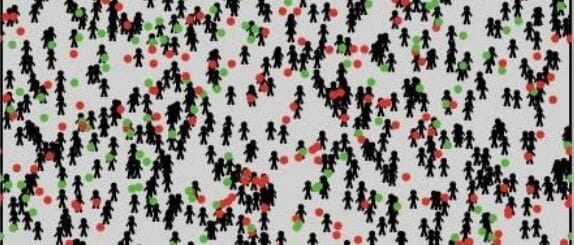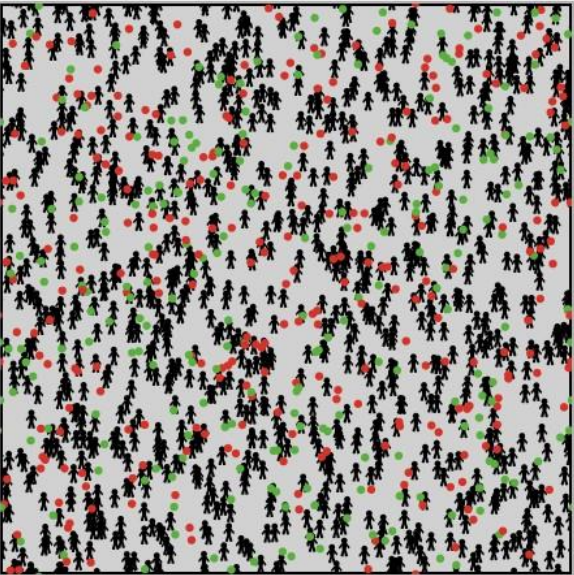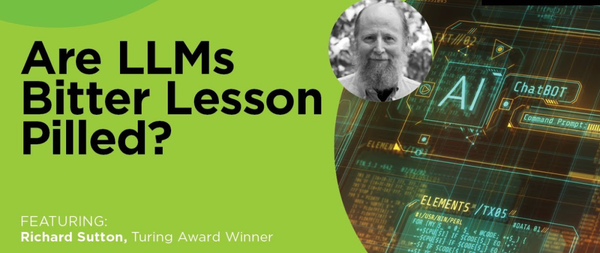Why Luck Matters More Than Talent for Success in Life | [Jingwei Insight]
![Why Luck Matters More Than Talent for Success in Life | [Jingwei Insight]](/content/images/size/w1200/2025/10/img_001-103.jpg)
Ig Nobel Prize & The Role of Luck in Success

Since its inception in 1991, the Ig Nobel Prize has grown steadily in fame. By around 2009, it began receiving systematic coverage in the Chinese-speaking world.
Initially conceived by scientists as a tongue-in-cheek form of self-mockery, the awards often recognized seemingly absurd research.
For example:
- 1993 Physiology or Medicine Prize — awarded to a 9-page paper with 976 co-authors, where the author list alone filled 4 pages.
Yet, many winners presented strikingly creative work — and some later won actual Nobel Prizes.
---
2022 Economics Award: Talent vs. Luck
In 2022, the Ig Nobel Prize in Economics went to the study "Talent and Luck: The Role of Randomness in Success and Failure", which built a simulation model to measure how much success is due to skill versus luck.
---
1. Model Design
The research addresses a modern paradox:
- People tend to credit success to personal effort, talent, and skill.
- Yet, many successful individuals were ordinary before breakthroughs — suggesting luck plays a significant role.
Talent Distribution
- Talent and effort generally follow normal distributions.
- Most people cluster near the mean, with only a small fraction showing exceptional skill.
- Example:
- In 100m sprints, most participants fall between 13–19 seconds.
- The fastest (world record ~9.6 seconds) is only ~2× quicker than an average runner.
- Effort shows similar range limits: e.g., 15h/day study vs. 7h/day — only ~2× difference.
Wealth Distribution
- Wealth follows a power-law (Pareto) distribution.
- Example:
- 2% of customers hold 80% of deposits.
- Inside that 2%, the richest 2% own 80% of that wealth.
- Potential wealth is theoretically unlimited, given continuous opportunities.
---
Building the Simulation
Researchers from the University of Catania (Economics + Physics) created the model:

- Setup
- 1,000 individuals on a 201×201 grid, each starting with $10.
- Talent assigned via a normal distribution.
- 500 random “events” placed:
- Green dots → good events (chance to double wealth, proportional to talent)
- Red dots → bad events (chance to halve wealth, inversely proportional to talent)
- Timeline
- 80 event rounds (each = 6 months).
- Total simulation: 40 years (age 20 → 60).
---
2. Luck Outweighs Talent
Key Results (40 years, equal good/bad events)
- Only 4 individuals ended with > $500.
- Wealthiest 20 people held 44% of all wealth.
- ~50% had less than their starting $10.
Case in point:
- Richest person ($2,560) ranked 496th in talent — entirely ordinary.
---
Extended Experiment — 100 Generations
- Each life repeated 100 times.
- Talent re-assigned based on previous wealth (wealthier individuals → slightly higher talent next round).
- Findings:
- Richest person: $40,960, talent rank 480th.
- Most talented person: $2,560 (~6% of richest’s wealth).
- Probability that the most talented person is also the richest: 3%.
- Top 160 talented individuals having > $10 in wealth: 32%.
Conclusion:
Even under repeated trials, luck consistently outweighed talent in determining extreme wealth outcomes.
---
> Note: The model’s doubling/halving mechanism exaggerates outcomes. Real-world wealth changes are often additive/subtractive.
> Still, the principle holds: at large scale, randomness dominates.
---
3. Social Order vs. Success Patterns
Adjusting Event Ratios
Researchers tested scenarios:
- 80% good events / 20% bad events
- 20% good events / 80% bad events
Observations
- Good-event-dominant societies:
- Talent plays a stronger role.
- Greater wealth inequality.
- Bad-event-dominant societies:
- Talent–wealth link weakens.
- Wealth gap narrows — but society is poor.
- Only 87/1,000 end with more than their starting wealth.
---
Implications
- In stable, positive societies, talent thrives but creates unequal outcomes.
- In chaotic, high-risk societies, talent is less correlated to wealth — and overall prosperity drops.
---
Modern Creator Economy Perspective
In today’s digital economy, the same dynamics apply to content creators:
- Great content ≠ guaranteed discovery or monetization.
- Platform algorithms, timing, and random boosts often decide visibility.
Tools like AiToEarn官网 help creators mitigate randomness:
- Simultaneous publishing to multiple platforms (Douyin, Kwai, WeChat, Bilibili, Xiaohongshu, Facebook, Instagram, LinkedIn, Threads, YouTube, Pinterest, X/Twitter).
- Integrated analytics & AI content generation.
- AI model rankings: AI模型排名.
By combining skill and strategic distribution, creators can improve odds in environments where luck often overshadows talent.
---
Final Thought
Understanding how luck, talent, and social conditions interact can help both individuals and organizations design better strategies — whether for building wealth, influence, or creative success.
---
❓ Question for You:
Knowing that luck can outweigh talent even over many years, how will you interpret celebrity biographies and “success formulas” in the future? Which factor do you believe you can actually control?



